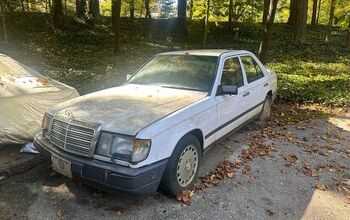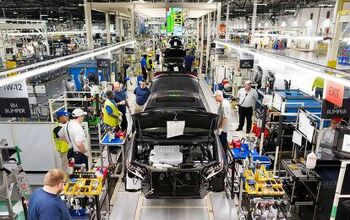Tennessee Tug-of-War: State Could Lose $60 Million in Federal Funding Over DUI Law

State lawmakers in Tennessee weren’t expecting to have the financial rug pulled out from under them when they passed a new DUI law earlier this year.
The law, which boosts penalties for younger drivers caught with alcohol in their bloodstream, is in violation of federal standards. Now, the state is scrambling to stop the loss of $60 million in federal road funding.
According to the Chattanooga Times Free Press, the law, which passed unanimously in the state Senate, must be repealed by October 1 to avoid noncompliance.
Federal law mandates a maximum blood-alcohol content of 0.02 percent for drivers under the age of 21. Tennessee’s law kept that maximum for drivers 17 and younger, but raised it to 0.08 percent for drivers aged 18 to 21.
The law came with steep penalties for the older cohort — if caught exceeding the limit, they’ll face the same punishment as someone 21 or older charged with a DUI (mandatory 48 hours in jail, a fine of up to $1,500 and a one-year driver’s license suspension). The earlier law saw less severe penalties for 16 to 20-year-olds who blew over 0.02.
The National Highway Traffic Safety Administration and Federal Highway Association aren’t happy. In a statement, the agencies said, “The new law raising the allowable BAC for 18- to 20-year-old drivers above the federal limit makes the roads more dangerous for everyone and does not comply with the federal zero tolerance law.”
Both agencies are prepared to yank 8 percent of the state’s federal roads funding. Tennessee Governor Bill Haslam told the Associated Press that the funding is “too big of a chunk of change to lose.”
The Governor and Attorney General Herbert Slatery want a federal waiver to keep funding (and the law) on track. In a letter to U.S. Transportation Secretary Anthony Foxx, Slatery claimed the state was still in compliance with the federal statute, as it remains illegal for anyone under the age of 21 to consume alcohol.
[Image: KOMUnews/ Flickr]

More by Steph Willems
Latest Car Reviews
Read moreLatest Product Reviews
Read moreRecent Comments
- Brandon I would vote for my 23 Escape ST-Line with the 2.0L turbo and a normal 8 speed transmission instead of CVT. 250 HP, I average 28 MPG and get much higher on trips and get a nice 13" sync4 touchscreen. It leaves these 2 in my dust literally
- JLGOLDEN When this and Hornet were revealed, I expected BOTH to quickly become best-sellers for their brands. They look great, and seem like interesting and fun alternatives in a crowded market. Alas, ambitious pricing is a bridge too far...
- Zerofoo Modifications are funny things. I like the smoked side marker look - however having seen too many cars with butchered wire harnesses, I don't buy cars with ANY modifications. Pro-tip - put the car back to stock before you try and sell it.
- JLGOLDEN I disagree with the author's comment on the current Murano's "annoying CVT". Murano's CVT does not fake shifts like some CVTs attempt, therefore does not cause shift shock or driveline harshness while fumbling between set ratios. Murano's CVT feels genuinely smooth and lets the (great-sounding V6) engine sing and zing along pleasantly.
- JLGOLDEN Our family bought a 2012 Murano AWD new, and enjoyed it for 280K before we sold it last month. CVT began slipping at 230K but it was worth fixing a clean, well-cared for car. As soon as we sold the 2012, I grabbed a new 2024 Murano before the body style and powertrain changes for 2025, and (as rumored) goes to 4-cyl turbo. Sure, the current Murano feels old-school, with interior switchgear and finishes akin to a 2010 Infiniti. That's not a bad thing! Feels solid, V6 sounds awesome, and the whole platform has been around long enough that future parts & service wont be an issue.


































Comments
Join the conversation
The drinking age was a problem due to the "blood borders". 18 year olds living in a 21 state knew exactly how far the nearest bar was. The idea of one age was good. It should have been 19, which would have kept it out of High School but would not have made the lives of College Administrators hell...I drank cheap pitchers in the Student Union but my kids would in theory be sanctioned and be forced to take alcohol education courses by the same school for the same thing. The problem was, like all good Americans, we had to go prohibition again and do 21.... The law could have been 18-19 for all, but we are Americans and don't do "tolerance", only "prohibition" and "bigger hammer". This has created a whole group of folks taught to drink in secret and "pre game". We were drunk at the end of the night out...we didn't leave that way....that is a big difference. Beer at the Student Union was social....in the open...surrounded by normal folks....a brake on bad behavior. Intox driving is bad, but the social policy as pushed by MADD and others has also caused a lot of other problems. They were unable to get their agenda in every state legislature so concentrated on the Feds and got the Feds to use highway money to coerce compliance. Much like the NRA, most politicos live in fear of MADD. For each, we end up with bad social policy as a direct result of good intentions. I will always recall, on TV, when Bill Clinton signed the .08 legislation forcing states to all go to that standard. "an when you go back again for .05, I'll be there with you". Prior laws were .15 or .10. Lowering it to .08 just meant the person who split a bottle of wine has to worry on the way home, even though they aren't really intoxicated...which was the whole point. Representing DWI clients for a long time...there are two types...those caught out one night, (they get caught after a 57/30 traffic stop, they don't know don't do TWO things wrong) and those who are always drunk and drive occasionally (they get busted for hitting a mailbox-they tend to be very careful but ...they are always shot...). The increased penalty all hit the first timers but does zero for the always drunk. In my area a first timer gets a mandatory breath tester in the car, for another $2000 for the year in various charges. A valuable probation tool, yes, but overkill for the first timers. Me, I drink on my back deck, or call Uber. A taxi is always cheaper than Attorney fees, Court fees, other Court fees, Substance Abuse evaluation, taxis to and from Court, Drinking Driver Classes, MADD victim impact panel (yes they are rooted in the money machine, private lobbying group, ahem), breath test machine in car, other State Driver Assessments, and of course, Assigned Risk Auto Insurance costs. Traffic Tickets are a revenue item, and DWI tickets are revenue items to an order of magnitude higher.
Strong is the asshattery throughout this thread.